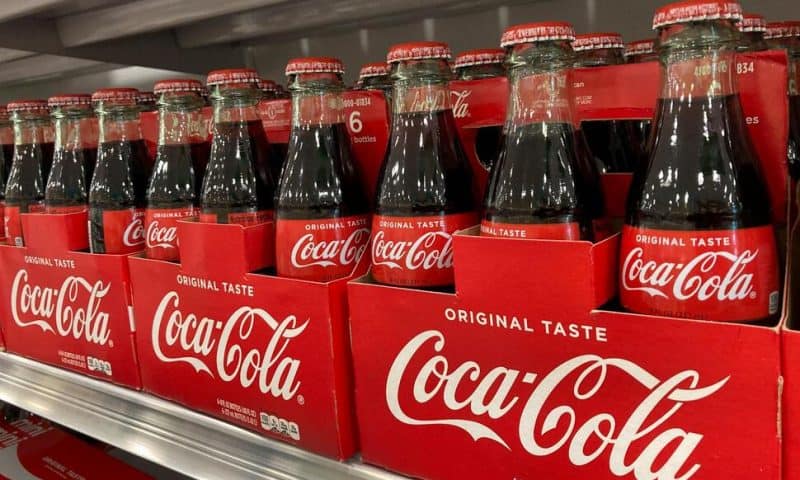Coca-Cola posted better-than-expected sales in the fourth quarter as venues like coffee shops and movie theaters continued to reopen.
Coca-Cola and posted better-than-expected sales in the fourth quarter as the omicron variant barely registered and venues like coffee shops and movie theaters continued to reopen around Revenue rose 10% to $9.5 billion in the October-December period. That beat Wall Street’s forecast of $8.98 billion, according to analysts polled by FactSet.
The World Heath Organization named omicron as a variant of concern in late November, triggering lockdowns in some parts of the world. Chairman and CEO James Quincey said there was some impact in December and January, but the disruption was not as great as previous waves of the virus.
Quincey said a restructuring announced in late 2020, which reduced the company’s business segments and cut 200 slow-selling drinks like Tab and Odwalla juices, left Coke more nimble and better able to redirect marketing and other resources.
“It was pruning the garden to let the better flowers grow,” Quincey said.
For the first time since the pandemic began, the volume of Coke products being sold for use outside of the home in the fourth quarter exceeded the levels recorded in 2019, the company said. Quincey said Coke is expecting consumer mobility to continue to improve this year.
Coke said it expects to deliver adjusted revenue growth of 7% to 8% this year, ahead of its typical forecast of 4% to 5%. Quincey said that’s partly due to markets reopening around the world, but also because of planned price increases to offset rising costs for commodities like sugar and aluminum cans as well as transportation.
Still, Quincey said Coke will tread carefully with price increases.
“While it’s easy to respond to inflation by putting up the prices, there is clearly __ as there is broad-based inflation __ going to be a squeeze on real incomes in a number of countries,” Quincey said Thursday during a conference call with investors. “We do not want to lose customers.”
Coke said its coffee sales volumes grew 17% in the October-December period as its Costa coffee shops reopened in the United Kingdom. Sports drinks rose 18% thanks to strong growth for Bodyarmor. Coke, which has had a 15% share in Bodyarmor since 2018, bought full control of the brand for $5.6 billion in November.
Net income jumped 66% to $2.4 billion. Earnings, adjusted for one-time items, fell 5% to 45 cents per share. That was better than the 41-cent earnings Wall Street forecast, according to FactSet.
That was better than Wall Street expected. Industry analysts had projected earnings of 41 cents per share on revenue of $8.98 billion, according to FactSet.
Coke shares rose nearly 2% in morning trading.
Rival PepsiCo also reported better-than-expected fourth quarter results Thursday. Pepsi’s net revenue grew 12% to $25.2 billion, better than the $24 billion Wall Street was anticipating. Adjusted earnings per share of $1.53 was a penny ahead of forecasts.
Pepsi also said it’s seeing higher inflation globally for commodities like cooking oil and packaging as well as transportation, and it’s raising prices to account for it. Those price increases have yet to dent sales.
“We’re feeling good about how our consumers are staying loyal to our brands in spite of some of our pricing decisions,” CEO Ramon Laguarta said Thursday during a conference call with investors. Laguarta said higher spending on marketing globally has also helped demand.
Pepsi forecast slower adjusted revenue growth than Coke, of 4% to 6%. PepsiCo’s shares fell nearly 2% Thursday.

